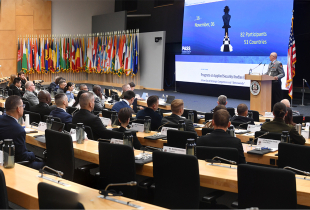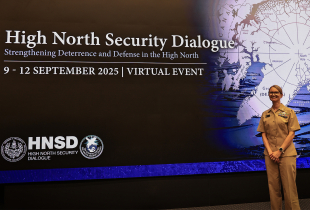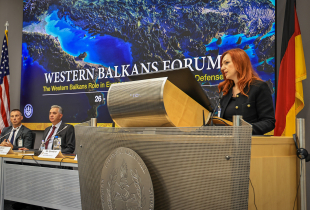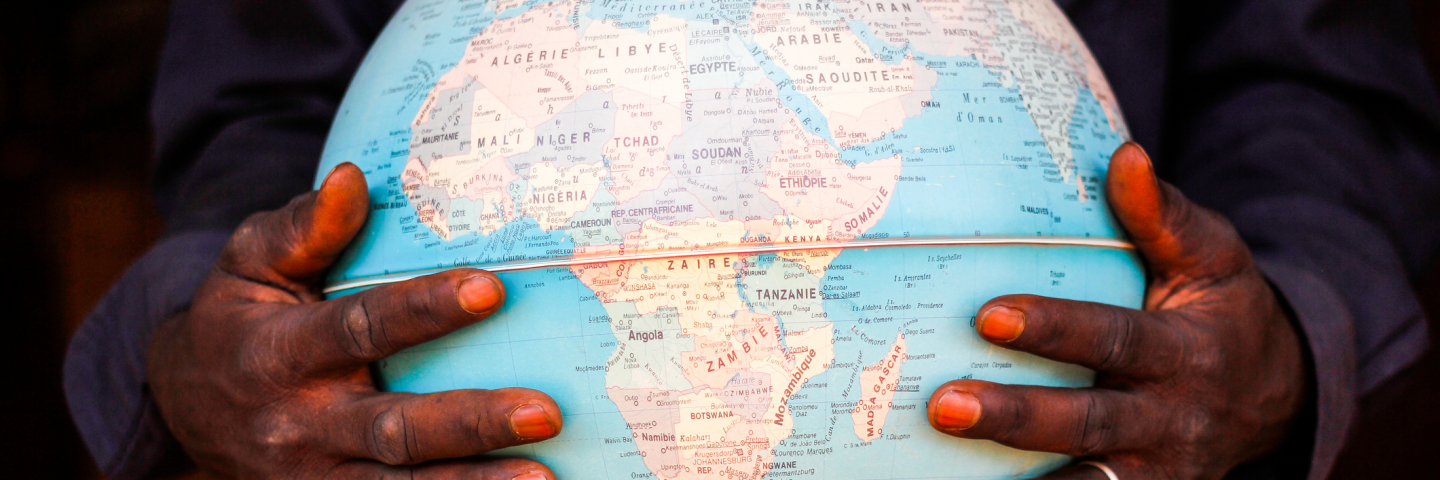
Europe and West Africa: Transnational Challenges and Capacity Building
The George C. Marshall European Center for Security Studies gathered more than 40 practitioners, scholars, and experts from 16 countries in Europe, Africa, and North America in April 2021 to consider the complexity of transnational threats in West Africa and the effectiveness of European partnerships in supporting responses to them. The virtual conference featured four panels with eight expert presentations, as well as a vibrant non-attribution discussion among participants. Key takeaways emerging from the conversation include the following points.
Europeans and West Africans need a common language and vision of shared transnational challenges.
Terrorism in West Africa is not, as the international community tends to believe, a religious import related to Islam; it is now a homegrown problem about instrumentalized identities, economic opportunity, and physical protection. ‘Irregular migration’ is a European notion that does not resonate in West Africa, where cross-border travel for work has long been the norm.
West Africa’s transnational challenges are structural.
Economic competition, climate change, land use disputes, ideological differences, ethnic- and community-based tensions, and pastoralist-farmer clashes all contribute to problems like trafficking and terrorism. Actors blur boundaries: militias traffic and detain migrants, rebels trade in weapons, terrorists collaborate with transnational organized criminals. Ordinary West Africans eking out a living may resist counterterrorism or counter-trafficking measures that introduce change and jeopardize their survival within the current system.
Turning to migration and collaborating with terrorists or traffickers are rational responses to the West African environment.
Ordinary West Africans often tolerate, work with, or join terrorists and traffickers for entirely mundane reasons. They may do so, for example, simply to protect themselves, their homes, their livestock, their livelihoods, and their communities. West Africans travel abroad – usually within West Africa, sometimes to Europe – for work and opportunity, as they have done for decades.
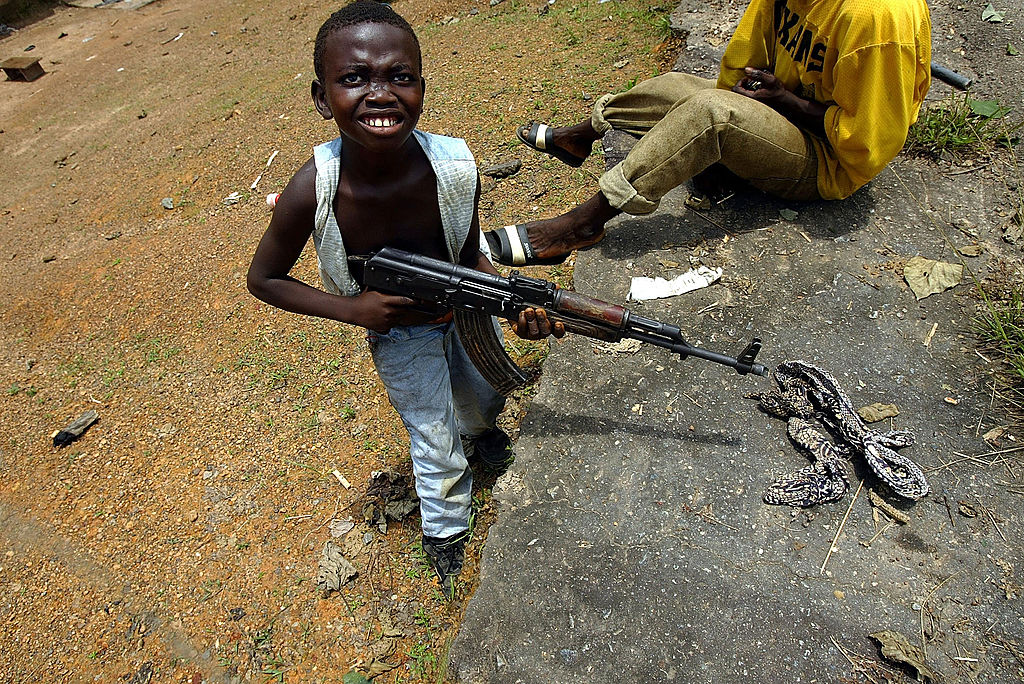
Terrorists in West Africa have become expert at exploiting weakness.
Terrorists have manipulated local conflicts and cleavages to entrench cycles of violence in the Sahel and Lake Chad Basin, while acquiring resources, safe havens, and logistical hubs in the calmer areas of West Africa, including within littoral states. They also target Westerners and showcase Western disorganization and difficulty in responding to attacks, exploiting these shortcomings for propaganda purposes.
Migrating to Europe is a high-stakes gamble for West Africans.
The small fraction of West African migrants headed to Europe faces a harsh road, but these migrants remain undeterred by risk of extortion; forced recruitment into terrorism; and abuse at hands of security forces, smugglers, traffickers, and terrorists.
Border regions remain a critical battleground in West Africa.
Peripheral areas, which historically have been largely self-governed, are under pressure from terrorists and traffickers, who prefer to operate along two or three national borders. West African states must learn to project power to support remote communities when refugees and internally displaced persons finally return to their abandoned homes in the borderlands.
Military responses are often necessary but always insufficient.
Armed forces defend nations against threats to national security, but their actions must be complemented by civilians who can bring stability. West African militaries have challenges in terms of unit coherence, rank structure, training absorption, and so on. A prolonged, overly militarized approach to transnational problems can suggest to a country that the state cannot provide security to its people and its territory.
Achieving stability and security requires getting transitions to civilian control right.
To (re)establish security in unstable zones of West Africa, military control should hand off quickly for stabilization to local civilian authorities, who must arrive with speed and undertake actions on a large scale to consolidate gains through infrastructure, economic, and social projects. Relatively quickly, sometime between 18 and 36 months, humanitarian responses must give way to sustained development, and stabilization must transition to long-term governance. The sequencing and effectiveness of these transitions – from military to stabilization to governance – are critical to generating lasting security.
West African nation-states must lead in strategy and governance.
Many of the solutions to transnational challenges lie in the capital cities of West Africa. These countries must develop robust strategies to deal with the problems, then patiently build the capacities necessary to implement them. Local ownership and agency over stabilization efforts, service provision, and good governance is essential to success. External support is a waste of time and resources, if it is not provided in support of endogenous solutions.
West Africans must guide international support against transnational challenges.
West African states have the most at stake in fighting transnational challenges on their territory. They should help coordinate external partners, prioritize areas of mutual concern (e.g., small arms and light weapons trafficking), lead on policy decisions about dialogue with non-state actors and adopting national migration laws, and help educate external partners about on-the-ground security dynamics.
ECOWAS needs a clearer and stronger role in responding to transnational threats.
West Africa’s long-established subregional body, the 15-member Economic Community of West African States (ECOWAS), has been somewhat sidelined by regional activities under the African Union (AU) and smaller initiatives like the G5 Sahel. ECOWAS should have an important role in helping to implement AU actions and to contain transnational threats within the Sahel zone, protecting the rest of West Africa from the damage.
Essential European support has had some counterproductive impacts.
Europeans have devoted vital military actions, training missions, funds, equipment, diplomatic support, investments, and much more to help West Africa face transnational challenges. At the same time, strict ‘no negotiation’ approaches to terrorism and simplistic ‘stop the boats’ policies regarding migration have curtailed options for West African states and societies in ways that exacerbate insecurity – and perhaps, ironically, terrorism and migration as well.
Aligning and coordinating security responses in West Africa has itself become an important goal.
International actors have been critical for countering transnational challenges, but the proliferation of initiatives has created a security ‘traffic jam’ or ‘bottleneck’ in West Africa, complicating de-confliction, coordination, and resource management. Mapping the myriad initiatives and making them complementary and mutually reinforcing requires deliberate action.
China has not applied itself as a security partner against transnational threats in West Africa.
European countries and the European Union are the major external security partners in West Africa, and they have worked extensively alongside non-Europeans like the US and Japan. China, meanwhile, has offered little security assistance to West African states, focusing instead on making economic inroads. There exists in West Africa an appetite for more great power cooperation in support of West African initiatives that will bring non-military solutions to transnational challenges in the subregion.
For Academic Citation
Ben Nickels et al., “Europe and West Africa: Transnational Challenges and Capacity Building,” Marshall Center Security Insights, no. 66, April 2021, https://www.marshallcenter.org/en/publications/security-insights/europe-and-west-africa-transnational-challenges-and-capacity-building.
The George C. Marshall European Center for Security Studies
The George C. Marshall European Center for Security Studies in Garmisch-Partenkirchen, Germany, a German-American partnership, is committed to creating and enhancing worldwide networks to address global and regional security challenges. The Marshall Center offers fifteen resident programs designed to promote peaceful, whole of government approaches to address today’s most pressing security challenges. Since its creation in 1992, the Marshall Center’s alumni network has grown to include over 14,000 professionals from 157 countries. More information on the Marshall Center can be found online at www.marshallcenter.org.
The articles in the Security Insights series reflect the views of the authors and are not necessarily the official policy of the United States, Germany, or any other governments.
